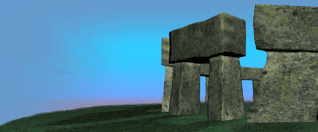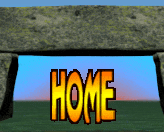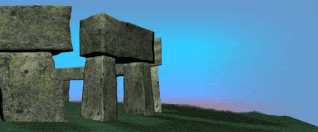Site updated May 2008.
SPACE RITUAL 2008 TOUR DATES
Fri 20th June
- Ilfracombe - Marlborough Hotel, 7 Market Street EX34 9AY
Sat 29th Nov
- Christchurch - Thomas Tripp, 25-27 Bargates BH23 1QD, 01202 471229
NIK TURNER BAND 2008 TOUR DATES
Fri - Sun 27 - 29th June
- Glastonbury Festival - Worthy Farm - Nik Turner Band - Fri 27th 6pm,
Inner City Unit tbc
Thurs - Sun 7 - 10th Aug
- Earthwise Festival - Dorset - 0845 330 4340 (Nik Turner appears Fri 8th)
Fri - Sun 1 - 3rd Aug
- Celtic Blue Rock Festival - Southwest Wales - 0870 1407 3174
Fri - Sun 22 - 24th Aug
- Fishguard Jazz Festival - Wales, Llanwda, Goodwick, Pembrokeshire SA64 0HX 01348 874015
ALAN DAVEYS GUNSLINGER 2008 TOUR DATES
Sat 7th June
- The Board Walk, Sheffield
Thurs 12th June
- Arts Centre, Salisbury
Fri 13th June
- Queens Hall, Narberth
Sat 21st June
- Ipswich Railway, Ipswich
Fri 27th June
- The Bull and Gate, Kentish Town, London
Fri 18th - Sat 19th July
- The Sonic World Fest, Ripley Derbys
Fri 25th July
- The Point, Cardiff
Fri 19th Sept
- Castle Hall, Hertford
Fri 26th Sept
- Muni Hall, Colne
Fri 3rd Oct
- Civic Hall,Whitehaven
Sat 4th Oct
- Assembly Rooms, Tamworth
Fri 17th Oct
- Guild Hall, Gloucester
NEW DAVE ROBERTS SPACE RITUAL BIOGRAPHY>
Click on the link to read the Dave Roberts Space Ritual Biography . (PDF format)
Hawkwind: They're still feeling mean
Tim Cumming wanted to make a film celebrating Hawkwind. The band weren't exactly cooperative...
Published: 30 March 2007
I remember the Hawkwind drummer Richard Chadwick sitting behind his kit in their studio - a converted cowshed on the founder-member Dave Brock's West Country farm - musing on the nature of rock band membership. It wasn't a brotherhood, he said. It was a wolf pack. And when the pack turns on you, watch out. For the past year five been working on a film about the history of the band for BBC4. It goes out tonight, but it's a minor miracle that it's out at all. When Brock withdrew from the project after filming had been completed at the end of last summer, the chance of anyone getting to see the result was as murky as a 1970s Hawkwind bootleg. Going into Brock's home-built studio is like entering a parallel dimension, a rabbit-hole into a psychedelic Wonderland of band-related art, posters, photographs, and other ephemera. There are banks of equipment - keyboards, computers, customised speakers and guitars. Sitting in a bulky attache case on a sideboard, like some antique code breaking device, is an audio generator like that used by Hawkwind's very first electronics pioneer, the former roadie Dik Mik Davies.
Many people have passed through Hawkwind since those early days in Ladbroke Grove, but Brock is the one constant. A lot of ex-members now resent the control that he has come to exert over the band while others are happy to climb aboard now and again. All of them, insists the ex-manager Doug Smith, believe that they are all a part of Hawkwind. But what began as a fellowship is now owned by Brock as a trademark. When he took his fellow founding member Nik Turner to court over the latter's use of the name Hawkwind for his own band of ex-members in 2003, many observers heard the death knell of the band's original spirit. Perhaps; but, as the science-fiction author and Hawkwind collaborator Michael Moorcock said when interviewed for the film, neither Brock nor Turner had seriously broken faith with their audiences or with their original ideals. Ownership of the legacy has divided them, but it's their work that binds them, too, whether they like it or not. The film goes back to the beginning, when they were a people's band, playing benefits for the White Panthers, Gay Pride, Friends of the Earth, your local health-food restaurant - you name it, they did it. They set up for free outside paying festivals, and rocked the locals under the arches of the Westway. There was a good cast of characters - from Moorcock and the manic poet and one-time frontman Robert Calvert to the electronic experimentalists Dik Mik Davies and Del Dettmar - both former employees with no musical knowledge. Mark E Smith recalls seeing Davies lighting joints on the sparks from his exploding equipment. "They started with a 20 minute number no one had heard before. The hippies got scared, it was great. Guess who was supporting them? Status Quo."
Then there was the statuesque "Miss" Stacia Page, too tall at 6ft 2in to be a ballet dancer. "An overwhelming sight for the youngsters in the crowd", Motorhead's Lemmy recalls. Unfortunately, like Davies and the drummer Simon King, she has not gone on the record about Hawkwind in decades, and probably never will again. Nor will Calvert, nor the noted sleeve-artist Barney Bubbles, who are both dead. Lemmy, famously, was their bassist before getting busted for drugs on the Canadian border (though if he hadn't had been sacked he wouldn't have formed Motorhead). There has been a rapid turnover from the start. The original drummer, Terry Ollis, ground to a stop on mandrax, the guitarist Huw Lloyd-Langton left after being fed acid at the Isle of Wight festival; Davies dropped out when the band became too successful after the hit single, "Silver Machine"; and Calvert was unstable and had to leave the band on a regular basis. Both bad blood and bad drugs flow freely through the Hawkwind story. But what a story it is, of unreconstnicted, old-school rock'n'roll idealism, communalism, excess. They were the first truly multimedia band, the pioneers of the all-night rave, the anarchistic, anti-capitalist precursors of punk and dance. There are precious few names from their past who join Brock on stage today. Lemmy, yes; the band's most famous bassist has often returned to play a few live numbers. But, as Carol Clerk's book The Saga of Hawkwind reveals, infighting and backbiting has been as much part of the Hawkwind story as the dancers and strobes. "We'd lock the doors so people couldn`t get out," remembers Lemmy of their early gigs. But it became more a case of locking the doors so that certain people couldn't get back in, and one person in particular - Nik Turner. "I felt Nik was the spirit of the band," Moorcock told us for the film, "but Dave was the backbone, without any doubt." But for Brock, Turner became a spirit he could do without: once he discovered that we were including him in the film, no amount of reasoning could alter his decision to withdraw. I first met Brock at the Canterbury Sound Fair in 2002. I had written about Hawkwind, reviewed some of their shows for the national press, and conducted informal backstage interviews with a few members for a prospective book on them. When other books appeared, I suggested the idea of a documentary, a film that would celebrate the band's music, shows, and spectacle, as told by some of the powerful, creative members who had passed through its ranks. Brock liked the idea and wished me luck. He didn't say anything about a Turner veto. But when we arrived to film Brock and the band in rehearsal, our greeting was an ultimatum: "If Turner is in the film, we pull out." We'd travelled down on one contract only to be presented with another excluding Turner from any film. But we'd already interviewed Turner. With a tight schedule, a tighter budget and crew on standby, we had no option but to sign the new contract. Things got worse in the afternoon. The bass player, Alan Davey, arrived and erupted into what Frank Zappa once called a rock musician's "petulant frenzy". "We don't need you, we can do out own fucking documentary," and so on. We offered to pay them to film playing three songs in rehearsal and three on stage. We did the rehearsals, but we never got to the stage. A few days later, they sent an e-mail banning us from the gig and calling a halt to the documentary until "issues had been resolved". They never were. There was a lawyers' meeting, where Brock's partner and the band manager, Kris Tait, confronted us with rushes we had shot on one of their old tour buses, with all its musty wreckage of earlier, more freewheeling eras. Whatever you said to them, it was, in their eyes, a sinister plot, and not too long afterwards they pulled out altogether, confident, I think, that they were derailing the whole film.
I didn't get it. We'd set out to celebrate the band. A few months before, I'd written a five-star review of their Christmas gig at London's Astoria. It was a great show, but now I was a bad person, working for the dark side. I was in rockumentary hell. Perhaps its all down to television. For its subjects, at least„ the camera is a surgical instrument rather than an artistic one. Writing about the band was one thing - no contracts, no archive to release - but when the cameras came on board everything changed. And, as a result of the court case against Turner, and the bad taste of biographies, Brock, I think, had become as embittered about the band as even the most embittered Hawkwind ex-member. Today the band are a self-contained cottage industry, arranging small annual tours, hosting their own private festivals, and releasing occasional albums. They have their hardcore fans and a fantastic set-list but, in the larger sphere, they are a forgotten` force. People don't know that Lemmy was once their bassist, and you read of groups like Enter Shikari mixing metal with trance as if it was the newest amalgam on Earth, but you search in vain for a mention of the Hawkwind template that pioneered that mix of heavy rock and electronics. Their early albums still sound fantastic. Many fans will find it inconceivable to have a Hawkwind documentary without Brock in it. I would have done too, not long ago. But, for the first decade, Hawkwind were truly an ensemble, and though it is much harder to examine later Hawkwind without Brock, our film possibly even benefits from his absence. Mining the dark side of the band, with Brock as the hiring, firing bete noire, is a shaky proposition without his testimony, his right of reply. Instead, we finished what we set out to do, to explore the alternative, underground spirit of the early days, and trace where it led to. I remember being dropped off at a train station by Brock, just before shooting began. We shook hands and 1 looked him in the eye, and promised a film that would celebrate the band. I couldn't keep Brock in the cut, but I kept that promise. The band is a massively undervalued, undersung force in British rock, and I wanted to redress that, with or without Brock's blessing. In the end, it is without.





